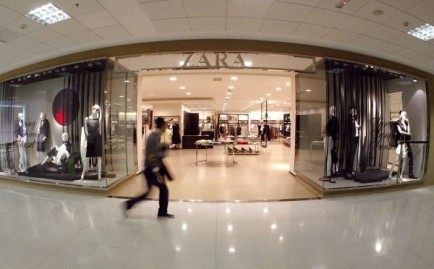
Zara’s profits are impressive, thanks largely to the company’s ability to quickly respond to fashion trends.
Spanish high street fashion retailer Zara has enjoyed a stunning first half to the year, with profits increasing more than 8% on last year as the company successfully embraces a new business model…
Led by on-off world’s richest man and Spaniard Amancio Ortega, founder of the Inditex Group, Zara posted profits of €1.3 billion in the six months from February 1, enjoying sales of €10.5 billion globally.
So why so successful? Ortega puts the chain’s sustained success down to its ability to beat its high street rivals to the fashion punch, bringing the latest hits from the catwalk to its stores faster than any other brand – and doing so at a competitive price.
This business model has allowed Zara to expand its global footprint, with the chain adding 80 new stores worldwide in the first half of the year. And by manufacturing its garments close to the markets it serves (Zara clothes are often made in factories in Spain, Portugal and North Africa, rather than the lower-cost but remote areas of India and China), it can logistically get new threads into its stores much more easily than its rivals.
According to the company, a new design can be in store a mere two weeks after first being drawn up, which is a testament to Ortega’s aim of always being first, and sticking rigidly to the often fickle whims of the fashion world.
Zara has been at the top of its game for a while now, and is a true Spanish success story. But with great power comes great responsibility, and some analysts have warned that the company cannot afford to rest on its laurels.
“When you are making big profits it is one of the most dangerous times in business because the competition want a share of that, and they smell it and they inevitably come,” cautioned Noel Byrne, Business Strategy Professor at the Madrid branch of Boston’s Suffolk University.
Byrne suggests Zara expand its business more broadly into the growing Asian markets – particularly in South Korea and China, the two countries where individual spending on clothing has increased the most anywhere in the world since 2004.
 en
en



 Vlaams-Nederlands
Vlaams-Nederlands
0 Comments
Leave a Comment
DISCLAIMER
The opinions and comments expressed by contributors to this Blog are theirs alone and do not necessarily reflect the views of VIVA Homes Under the Sun Ltd, any of its associated companies, or employees; nor is VIVA to be held responsible or accountable for the accuracy of any of the information supplied.
Have you got something to say?